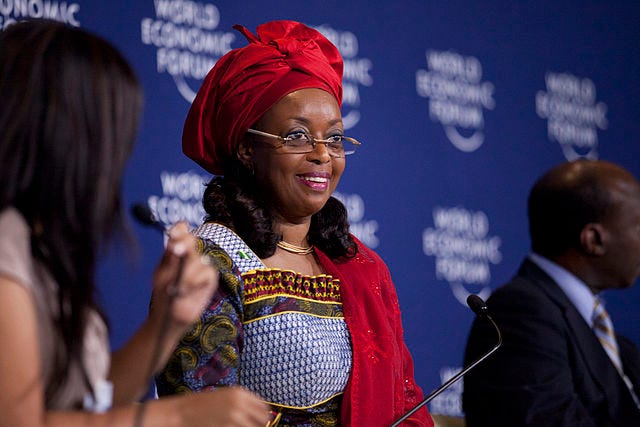🔅 Traditional Beliefs Collide With Climate Change, China's African Shift
Plus: A Former Oil Minister's Dubious Spending Spree, Upcoming Africa Climate Summit: All Eyes On the Deals, & More
Photo of the day: Burundi
Markets:
🟢 Nigerian SE: 65,492.92 (+0.01%)
🟢 Johannesburg SE: 74,022.58 (+1.02%)
🔴 Ghana SE: 3,062.02 (-0.08%)
🔴 Nairobi SE: 99.74 (-0.94%)
🟢 US S&P 500: 4,436.58 (+1.12%)
🔴 Shanghai Composite: 3,078.40 (-1.34%)
Inflation is dropping in Ethiopia and Angola: The latest figures show Ethiopian inflation rate slowing to 28.8%—the lowest it’s been in two years. In Angola, the rate fell to 12.1%.
*Data accurate as of the close of markets across the continent
Brief & Bright: Africa's Top Five Highlights
When Climate Change and Traditional Beliefs Collide

Is climate change really to blame for the drought in northern Kenya? It’s a tough question to answer, and one that has a lot of locals scratching their heads. You’ve got the modern explanations, like rising temperatures due to carbon emissions, but then you’ve also got the traditional beliefs, like God punishing people for fighting over pasture and water. And, of course, there’s always the possibility that the drought is due to some combination of the two. While half of Africans have heard of climate change, most still turn to traditional explanations like divine will and local deforestation. The government even called for a national day of prayer to ask God to send rain. It’s an outlook that’s not unique to Africa—one in ten Americans says climate change isn’t a serious problem because God is in control. Whatever the cause, locals are listening to the radio weather forecast, and for the warnings of soothsayers. But they don’t fully trust them either, because, hey, the meteorologists predicted another failed season in April, and instead, it brought plentiful rains.
A Former Oil Minister's Dubious Spending Spree: From Oil Contracts to Cartier Jewellery
Diezani Alison-Madueke, the first female president of the oil exporters group Opec and a former Nigerian oil minister, has been charged with bribery offences in the UK. She’s suspected of accepting bribes for awarding multi-million dollar oil and gas contracts. The 63-year-old has denied the allegations, but assets worth millions of pounds relating to the alleged offences have been frozen as part of an ongoing probe by the UK's National Crime Agency. And here’s what they alleged she benefitted from: £100,000 cash, chauffeur-driven cars, private jets, luxury family holidays, multiple London properties, furniture, renovation work, staff, private school fees, Cartier jewellery, Louis Vuitton goods… You get the idea. Sounds like the makings of a spending spree. The US Department of Justice has been able to recover assets totalling $53.1m linked to Ms Alison-Madueke's alleged corruption. Last year, the EFCC said about $153m and more than 80 properties had been recovered from the politician. We’ll have to wait and see what the court decides.
China's African Shift in Focus

China’s top Africa diplomat has announced that African countries want China to switch up its focus from building infrastructure to local industrialisation. The possibility of that change is welcome in light of the Africa Continental Free Trade Agreement, which was launched at the start of 2021 and is intended to enable African countries to trade tariff-free. China will discuss its plans for African industrialisation with African leaders at a special roundtable at the BRICS summit this week. Loan commitments have dropped sharply since the launch of China's Belt and Road Initiative in 2013 (when $160 billion was lent to African countries between 2000 and 2020), but the Chinese diplomat says that investments by Chinese companies in Africa, especially from small and medium-sized companies, will increase.
The Upcoming Africa Climate Summit: All Eyes on the Deals

The Africa Climate Summit is just around the corner, and people are expecting deals to be struck worth hundreds of millions of dollars. We’re talking nature-based investments, clean energy production, and climate adaptation efforts—the whole shebang. Twenty African heads of state and government have already confirmed their attendance, and 20,000 delegates from around the world will join them, including UN chief Antonio Guterres. The goal is to strengthen the continent’s voice and send a unified message to the COP28 UN climate summit later this year. African countries have already cut some major deals, like Portugal swapping $153 million worth of Cape Verde’s debt for nature investments and Gabon buying back $500 million of its international debt by issuing an eco-friendly bond of equal size. They’re also pushing for richer nations to make good on their financing commitments.
Mozambique's Medical Workers Strike: No Doctor's Appointments for You
Mozambique’s public health services are on strike—which means no doctor’s appointments for you! Medical workers, including nurses and pharmacists, are protesting the government’s decision to cut public sector salaries by 20% and cancel the 13th salary check for state workers. So if you’re feeling under the weather in Maputo, you’re out of luck—the only medical services that are still running are the maternity services of the main hospitals.
Food for Thought
“Other people's wisdom prevents the king from being called a fool.”
— Nigerian Proverb.
Are we hitting the mark?
Enjoying Baobab's updates? Spread the joy and share us with friends and colleagues — we'd be thrilled to have them join!
Feedback or thoughts? Just hit reply. We're all ears!




